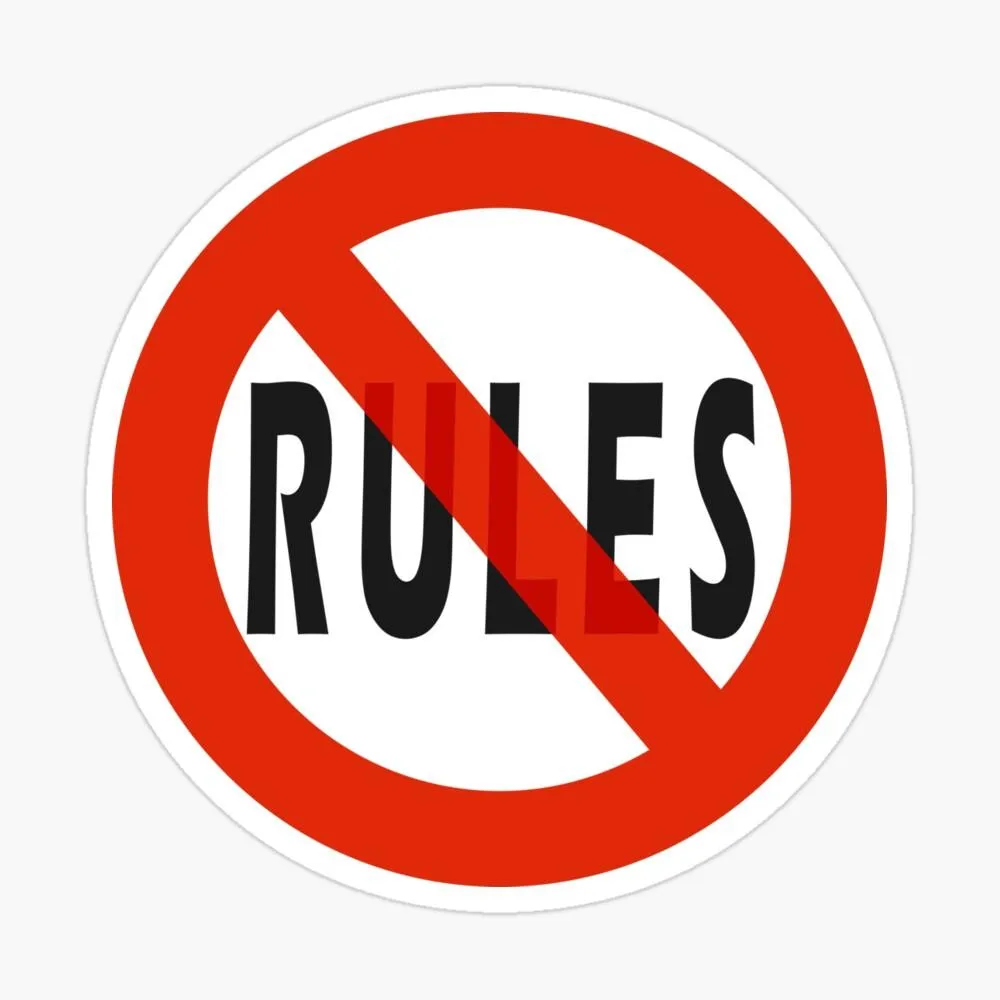AZIMUTH CONSULTING
Guiding Leaders From Chaos To Clarity In An Ever-Changing World

Blog

Rules Don't Matter
Embracing Freedom: The Case for Why Rules Don't Matter
Introduction:
In a world shaped by rules, regulations, and societal norms, the notion of rules not mattering might sound counterintuitive, if not outright rebellious. However, upon closer examination, it becomes evident that there are instances where rules might hinder progress, creativity, and personal growth. While rules serve important purposes in maintaining order and safeguarding societal well-being, there is an emerging perspective that suggests that a rigid adherence to rules can stifle innovation and impede our ability to think outside the box. This blog delves into the nuanced argument for why rules don't matter in certain contexts and the potential benefits of embracing a more flexible approach.
The Paradox of Creativity and Innovation
Rules, in many cases, are established to provide a structured framework for various aspects of life, from traffic regulations to workplace guidelines. However, when it comes to fostering creativity and promoting innovation, strict adherence to rules can lead to stagnation. The creative process often thrives on breaking boundaries and questioning the status quo, which inherently involves defying established norms. Artists, inventors, and thinkers throughout history have challenged conventional rules and norms, leading to breakthroughs that have shaped our world.
Consider the field of technology. If Steve Jobs and his team had adhered strictly to conventional rules and designs, we might never have seen the revolutionary iPhone. By pushing the boundaries of what was thought possible, they disrupted the mobile phone industry and changed the way we interact with technology. This example demonstrates that in certain contexts, rules can be seen as mere guidelines rather than unbreakable barriers.
Personal Growth and Exploration
Rules often dictate how we should navigate our lives, from educational paths to career choices. However, a rigid adherence to societal norms and expectations can hinder personal growth and self-discovery. Many individuals find their true passions and talents when they step outside the predefined paths and explore unconventional avenues. This requires the willingness to challenge rules and venture into the unknown.
Moreover, personal growth often involves making mistakes and learning from them. Rules can sometimes instill a fear of failure, causing individuals to shy away from taking risks. However, it is through failures that some of life's most valuable lessons are learned. By embracing a mindset that challenges the idea of rules as absolute, individuals can cultivate resilience, adaptability, and a stronger sense of self.
Navigating a Complex and Changing World
The world is not static; it's dynamic and ever-evolving. Rules that are formulated in one era might not necessarily apply or be relevant in another. A rigid adherence to outdated rules can impede progress and hinder our ability to address new challenges effectively. As societal norms and technologies shift, it becomes essential to question whether existing rules still serve their intended purpose.
Consider environmental regulations as an example. As our understanding of ecological systems deepens and the urgency of addressing climate change grows, rules must adapt to reflect this new reality. Insisting on following rules that were established before the recognition of these challenges could hinder our ability to take meaningful action.
Striking a Balance
It's important to clarify that the argument here isn't for complete anarchy or disregarding rules that are genuinely beneficial for societal harmony and well-being. Instead, it's about recognizing that rules are constructs created by humans to serve specific purposes, and those purposes can evolve over time.
Striking a balance between the necessity of rules and the need for flexibility is key. Context matters: certain situations call for adherence to rules, while others demand innovative thinking that challenges those very rules. The idea is not to abolish rules entirely, but to understand that there are times when a more flexible and open-minded approach is required.
Conclusion
Rules undoubtedly play a vital role in maintaining order, safety, and fairness in our society. However, a dogmatic adherence to rules can sometimes hinder progress, creativity, and personal growth. By recognizing that rules are constructs that should serve as guidelines rather than absolutes, we open ourselves to the potential for innovation, personal development, and adapting to the ever-changing world around us. In the end, it's not about completely dismissing rules, but about understanding when to follow them and when to challenge them in order to unlock our full potential.